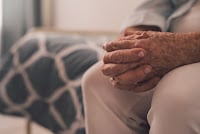A study in the Journal of Substance Abuse Treatment has shown that treating patients with opioid...
Behavioral Activation Therapy May Improve MH in Older People Who Have Been Abused

Psychotherapy based on the principles of behavioral activation may help reduce depressive symptoms and thoughts of suicide in people who have experienced elder abuse, according to a study published today in the American Journal of Geriatric Psychiatry.
Isabel Rollandi, Ph.D., of the Weill Cornell Institute of Geriatric Psychiatry, and colleagues examined data from 158 participants ages 60 or older who had experienced elder abuse. All participants had depressive symptoms as shown by a score of at least 10 on the nine-item Patient Health Questionnaire (PHQ-9) but did not have significant cognitive impairment. The researchers also collected data on the participants’ demographics, abuse history, and thoughts of suicide (PHQ-9 item 9) at baseline. The most prevalent abuse was emotional/psychological abuse, reported by 78.5% of participants, followed by verbal abuse, reported by 67.1%.
All participants completed 10 weeks of PROTECT therapy either in person or on the phone. PROTECT therapy consists of 45-minute sessions as follows:
- One to three sessions that include discussions and psychoeducation about stress and depression, and to formulate the participants’ treatment goals related to the abuse, such as taking steps to promote safety or improving self-care.
- Four to eight sessions to develop action plans to increase engagement in specific pleasurable and socially rewarding activities and meet the goals set.
- Two sessions to discuss how the participant was faring in accomplishing goals and to work on strategies to maintain gains after completing the therapy.
At the end of treatment, scores on the PHQ-9—which was administered at the start of each session—dropped a mean of 5.58 points among participants who reported thoughts of suicide at baseline and 5.25 points among those without thoughts of suicide at baseline. In addition, the percentage of participants who reported thoughts of suicide decreased from 19% at baseline to 5.7%.
“These findings suggest that a brief intervention for depression delivered in the community can significantly contribute to reducing depressive symptoms in elder abuse victims regardless of depression severity and presence of [thoughts of suicide],” Rollandi and colleagues wrote. “Furthermore, it shows that a depression intervention can reduce suicidal ideation frequency, contributing to decreasing mortality risk in this vulnerable population. These results highlight and reaffirm the imperative to address the mental health needs of elder abuse victims and to deliver effective and scalable psychotherapy treatments that can be integrated in the community.”
For related information, see the Psychiatric News article “Abuse of Older People Increases During Pandemic.”
(Image: Getty Images/iStock/Goodboy Picture Company)
Don't miss out! To learn about newly posted articles in Psychiatric News, please sign up here.





